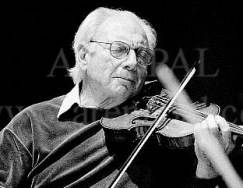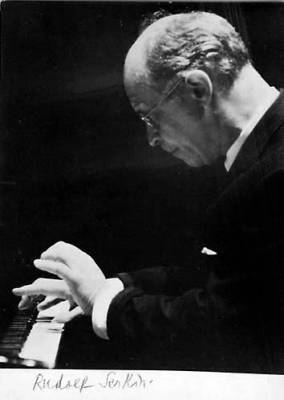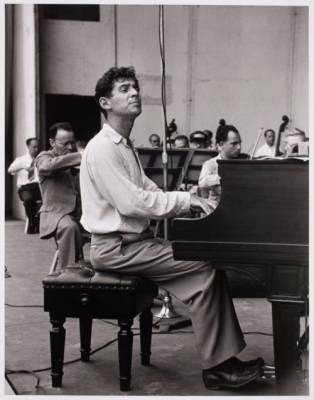Although these three quotes are all from Classical performers, I think they apply to any genre of music and indeed to many roles in life!
This is an element of my own view of musicianship, as articulated by three of my favorite players. By the way, it's an honor to the Jewish people that all four of these guys are of that lineage (as are many other great musicians).
From Artur Schnabel (1882-1951), pianist:
'The performer is the alpine mountain guide, absolutely essential in getting you up the mountain, as he knows the pitfalls and dangers along the way. But his purpose is to get you to the top of the mountain so that you might enjoy the view. So as performers, we are indispensable because we bring those black dots on the paper to life, but the music is the star.'
From Isaac Stern (1920-2001), violinist, in a master class:

'Don't use music to play the violin; use the violin to play music.'
From Rudolf Serkin (1903-1991), pianist:

'Although I am a pianist, the piano has always been less interesting to me than music.'
There are many comments other people have written about Serkin's amazing relationship with the music itself; here's just one, by sociologist Richard Sennett (quoted in the great biography of Serkin by Lehmann & Faber):
'The essence of Serkin's art is its intensity. In musical terms, this means that an immense effort is made to make each musical phrase expressive: attacks, ritards, and accents receive great care in his piano playing; the propulsion of the music is built upon the accumulation of these intense musical moments. Rudolf Serkin is not a relaxed pianist, nor is he a sloppy romantic. Rather he plays like a man in great pain who disciplines himself by focusing on the expressive possibilities of each chord, each melodic fragment under his fingers.'
From Leonard Bernstein (1918-1990), conductor, composer, pianist:

'One doesn't work for effects, and one doesn't set up in the artist business. One studies and learns and works and thinks to develop oneself as an intelligent, sensitive, and aware human being: and out of the always-increasing resources of intelligence, sensitivity, and awareness, the human being makes music.' (Etude Magazine, April 1967)
Oh, that our music making could have such significance, in whatever form! I look for it first to succeed in my own experience and before God, but certainly it's wonderful when a communication is clearly made to others as well!